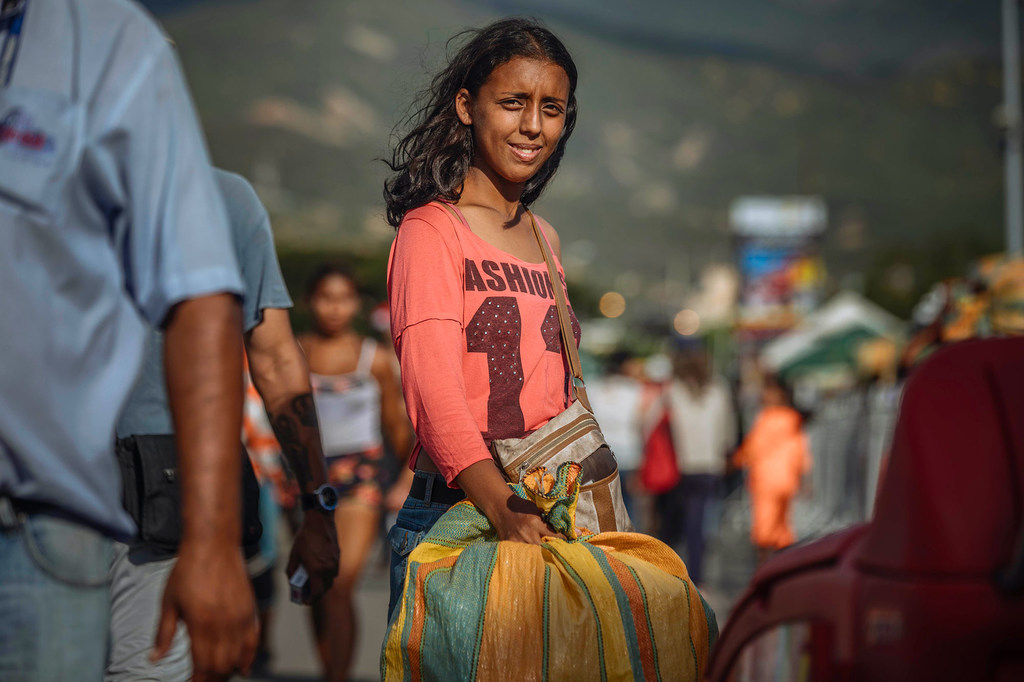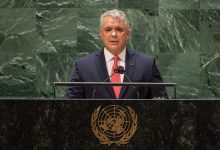UN chief welcomes Colombia’s ‘act of solidarity’ with 1.7 million Venezuelans
 The United Nations Secretary-General, on Monday, applauded the announcement by the President of Colombia that the country will provide temporary protection to all Venezuelans in its territory.
The United Nations Secretary-General, on Monday, applauded the announcement by the President of Colombia that the country will provide temporary protection to all Venezuelans in its territory.
The measure announced by Iván Duque Márquez earlier in the day, granted “Temporary Protections Status” to about 1.7 million Venezuelans for ten years, many of whom lacked regular status, affecting their ability to access essential services, protection and assistance.
“This important act of solidarity will allow approximately a third of the 5 million Venezuelan refugees and migrants in the region to formally access services and contribute to the Colombian economy”, said a statement issued by the spokesperson for Secretary-General António Guterres.
The statement also noted that the announcement came at a time when Colombia faces the unrelenting health and economic impacts of the COVID-19 pandemic.
“The inclusion of Venezuelan refugees and migrants will contribute to the pandemic recovery process and enable Venezuelans in Colombia to access the country’s health and other basic services”, it added.
The Secretary-General also reiterated the commitment of the United Nations “to accompany and support the Government and people of Colombia in their efforts to respond to the needs of vulnerable Colombians and Venezuelans.”
‘A life-changing gesture’
Filippo Grandi, UN High Commissioner for Refugees, who is currently on a mission to Colombia also welcomed the announcement, highlighting that the “bold humanitarian gesture” serves as an example for the region and the rest of the world.
“It is a life-changing gesture for the 1.7 million displaced Venezuelans who will now benefit from added protection, security and stability while they are away from home,” Mr. Grandi said.
“We applaud Colombia for its extraordinary generosity and its commitment to ensure protection for displaced Venezuelans. This decision serves as a model of pragmatism and humanity”, he added.
‘An example to the world’
Also on Monday, António Vitorino, Director General of the UN International Organization for Migration (IOM) highlighted that the Colombian move is key to facilitating Venezuelan refugees and migrants socio-economic integration and access to the national health system and COVID-19 vaccination campaigns.
“The Government of Colombia has once again shown both great solidarity and leadership. Its decision serves as an example to the world,” Mr. Vitorino said.
According to UNHCR, with the coronavirus pandemic compounding needs throughout the region, many Venezuelan refugees and migrants, as well as local communities, struggle to survive amid worsening poverty, job losses, evictions, hunger, and a lack of food and access to medical treatment.
Among others, the Temporary Protection Status will provide Venezuelans access to basic services including the national health system and COVID-19 vaccination plans, said the UN refugee agency, adding that regularization is also key to long-term solutions, including access to the job market, which in turn serves to lessen the dependency of people on humanitarian assistance while also contributing to the country’s post-pandemic socio-economic recovery.



